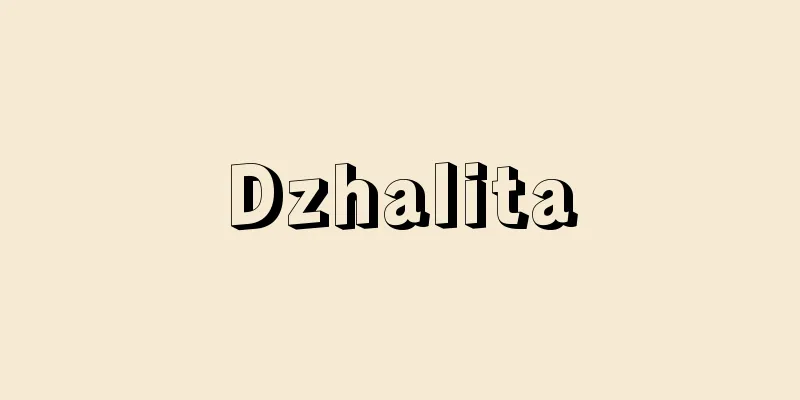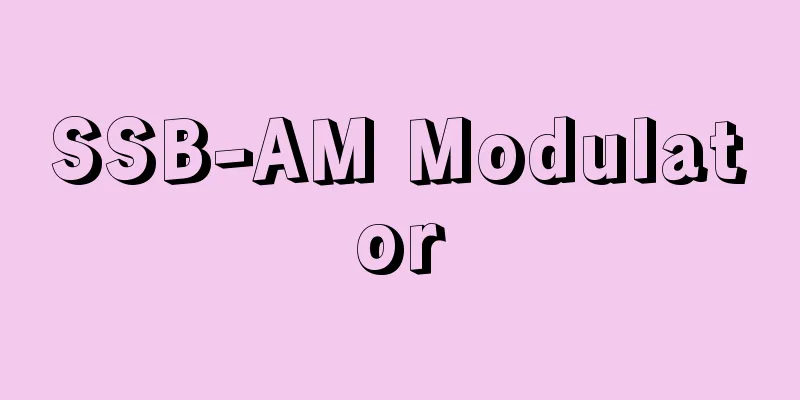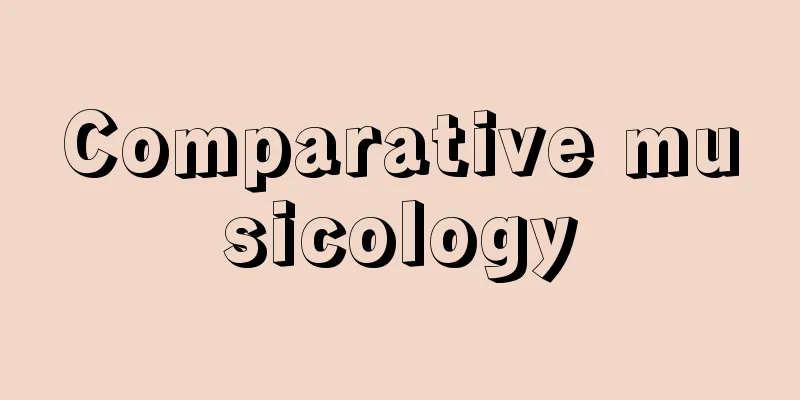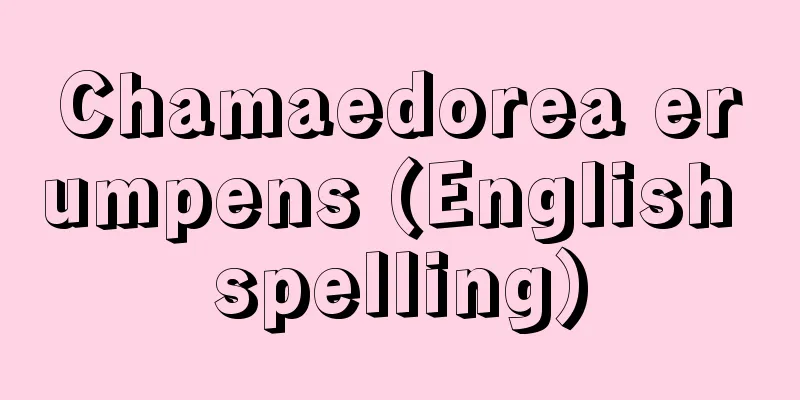Confession - Confession
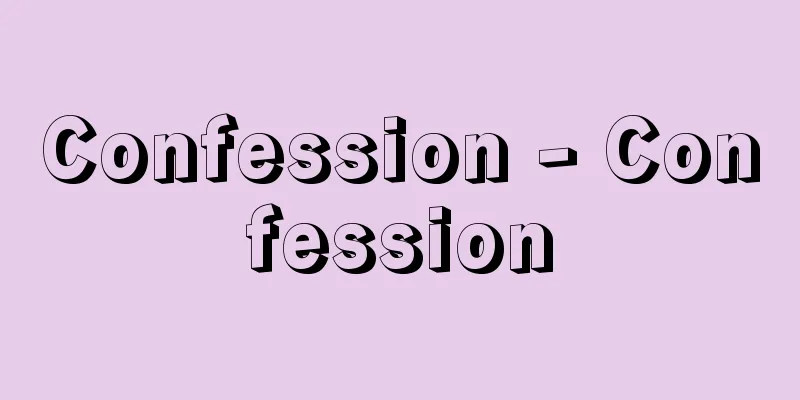
|
Under the Criminal Procedure Law, it is a statement made by a suspect or defendant admitting all or a major part of his/her criminal facts. Under the Civil Procedure Law, it is a statement made by a party to a lawsuit admitting facts asserted by the other party that are unfavorable to him/her. [Ichiro Uchida April 18, 2018] Confessions in criminal proceedingsArticle 318 of the revised Ritsuryo Act of June 1873 (Meiji 6) adopted the principle of requiring confessions, stating that "in general, guilt shall be established by oral confession," but Dajokan Proclamation No. 86 of June 1876 abolished this, stating that "in general, guilt shall be established by evidence," and adopted the principle of trial by evidence. (1) Admissibility of confessions Article 38, paragraph 2 of the Constitution states that confessions made under coercion, torture or threat, or after unreasonably long detention or detention, cannot be used as evidence, and Article 319, paragraph 1 of the Code of Criminal Procedure states that confessions made under coercion, torture or threat, after unreasonably long detention or detention, or any other confession that is suspected to have been made voluntarily cannot be used as evidence. This also includes confessions made by a person who admits to being guilty of the crime he or she is charged with (Article 319, paragraph 3 of the Code of Criminal Procedure). Case law has determined that confessions made in the hope of a stay of prosecution, based on the belief of the prosecutor that a stay of prosecution will be granted if the person confesses, are not admissible as evidence because of doubts about their voluntariness (Supreme Court, Second Petty Bench, July 1, 1966). Furthermore, when a suspect is psychologically coerced through the deception of an investigator, which may result in a false confession, the confession should be deemed to be of questionable voluntariness and its admissibility as evidence should be denied; the admission of such a confession into evidence would violate Article 319, paragraph 1 of the Code of Criminal Procedure, and ultimately also Article 38, paragraph 2 of the Constitution (Supreme Court Grand Bench decision of November 25, 1970). (2) Proving the voluntariness of a confession When a prosecutor tries to prove the voluntariness of a defendant's confession, he/she must make an effort to provide prompt and accurate proof, as much as possible, by using documents that record the circumstances of the interrogation and other materials related to the circumstances of the interrogation (Article 198-4 of the Criminal Procedure Rules). However, the amendment to the Code of Criminal Procedure in 2016 introduced a system for audio and video recording of interrogations, which made it mandatory in principle to audio and video record the entire interrogation process in cases subject to lay judge trials and cases investigated independently by the prosecutor (cases in which the prosecutor is directly charged or accused, or investigates on his/her own accord) (Article 301-2, Paragraph 4 of the Code of Criminal Procedure). Furthermore, when the defendant or his/her lawyer objects to the voluntariness of the defendant's statement, the prosecutor must request the examination of the recording medium to prove its voluntariness (Article 301-2, Paragraph 1 of the Code of Criminal Procedure). (3) Probative value of confession Article 38, paragraph 3 of the Constitution provides that no person shall be found guilty or punished if the only evidence against him is his own confession. Case law has determined that confessions made in court are not included in the confession under Article 38, paragraph 3 of the Constitution, because confessions made in court are made freely, in the presence of a defense attorney, and can be thoroughly examined by the court (Supreme Court Grand Bench decision of July 29, 1948). However, Article 319, paragraph 2 of the Code of Criminal Procedure provides that a defendant shall not be found guilty if his confession is the only evidence against him, regardless of whether it was made in court or not. Therefore, corroborating evidence is required for confessions made in court. In academic theory, it is debated whether corroborating evidence is required for confessions made by so-called accomplices. Case law has determined that not only a mere accomplice not undergoing joint trial, but also an accomplice (co-defendant) undergoing joint trial is essentially the same as a victim or other pure witness other than the defendant in relation to the defendant himself. Therefore, unless the statement of an accomplice or co-defendant regarding the facts of a crime does not have evidential capacity as per Article 38, Paragraph 2 of the Constitution, it has independent and complete probative force that should be left to free conviction, and is not considered to be the same as or equivalent to a confession of the person himself under Article 38, Paragraph 3 of the Constitution (Supreme Court Grand Bench Decision of May 28, 1958), and therefore corroborating evidence is not required for a confession of an accomplice. (4) Simple and speedy processing of confession cases The 2004 amendment to the Code of Criminal Procedure introduced summary trial procedures as a simple and speedy trial procedure for minor confession cases without dispute (Articles 350-16 to 350-29 of the Code), but there was a problem that even if a summary trial procedure was decided, the amount of evidence required would not change if it was necessary to prepare for the case in which the defendant later denies the allegations. Therefore, the 2016 amendment to the Code of Criminal Procedure took measures to allow for reinvestigation in the event that the defendant denies the allegations, and to enable the prosecutor to once dismiss the charges and then reindict after conducting a new investigation, when a decision to dismiss the charges due to dismissal of the charges has been finalized, it was made possible to reindict even if new important evidence regarding the criminal facts has not been discovered, as an exception to Article 340 of the Code of Criminal Procedure, which sets out the restrictions on reindictment for the same case (Article 350-26 of the Code of Criminal Procedure). As a result, investigative authorities are no longer required to exhaust all investigations in advance in cases where summary trial procedures are planned, making it possible to simplify investigations in cases where confessions have been made. [Ichiro Uchida and Morikazu Taguchi, April 18, 2018] Confessions in civil proceedingsA statement made by a party in a lawsuit that admits facts asserted by the other party that are detrimental to the party. Detrimental here means that if the facts are established, there is a possibility that the party will lose the lawsuit in whole or in part. In a confession, the other party usually asserts the facts first and then admits them, but there are also cases where the other party states detrimental facts and then invokes them. This is called a "preliminary confession." A confession made to the other party or a third party outside of court is called an "extrajudicial confession," while a confession made in front of a judge in a lawsuit is called a "judicial confession." The two are distinguished. An extrajudicial confession, even if invoked by the other party in a lawsuit, only has the meaning of a mere citation (indirect facts that are material to prove the facts), whereas a judicial confession does not require proof under the principle of oral argument (Article 179 of the Civil Procedure Act), and the court's right to determine the facts is excluded. Furthermore, the party who confesses is bound by this and, as a rule, cannot thereafter make any contrary claims. This is because a confession in court is a statement made by the party who made it at his or her own risk, and since that fact is directly used as the basis for the judgment, a confession cannot be easily revoked. However, if revocation were absolutely not permitted, it would be harsh on the party who falsely confesses. Therefore, case law and the prevailing opinion hold that a confession can be revoked if the other party agrees to the revocation, or if there is proof that the contents of the confession are untrue and based on error. The effect of a confession extends to higher courts if there is an appeal. In addition, if a party does not clearly dispute the facts asserted by the other party during oral argument or preparatory proceedings, it is deemed to have confessed (fictitious confession) and the examination of evidence is not required. [Takeyoshi Uchida and Tetsuo Kato] [References] | | | | | | |Source: Shogakukan Encyclopedia Nipponica About Encyclopedia Nipponica Information | Legend |
|
刑事訴訟法上は、自己の犯罪事実の全部またはその主要部分を認める旨の被疑者・被告人の供述をいう。民事訴訟法上は、訴訟の当事者が、相手方の主張する自己に不利益な事実を認める陳述をいう。 [内田一郎 2018年4月18日] 刑事訴訟における自白1873年(明治6)6月の改定律例第318条は、「凡(およそ)罪ヲ断スルハ、口供結案ニ依(よ)ル」として自白必要主義をとっていたが、1876年6月の太政官(だじょうかん)布告第86号は、これを撤廃して、「凡ソ罪ヲ断スルハ証ニ依ル」とし、証拠裁判主義を採用した。 (1)自白の証拠能力 憲法第38条第2項は、強制、拷問もしくは脅迫による自白または不当に長く抑留もしくは拘禁されたのちの自白は、これを証拠とすることができないとし、刑事訴訟法第319条第1項は、強制、拷問または脅迫による自白、不当に長く抑留または拘禁されたのちの自白、その他任意にされたものでない疑いのある自白は、これを証拠とすることができないとしている。起訴された犯罪について有罪であることを自認する場合もこれに含まれる(同法319条3項)。判例は、自白をすれば起訴猶予にする旨の検察官のことばを信じ、起訴猶予になることを期待してした自白は、任意性に疑いがあるものとして、証拠能力がないとしている(最高裁判所昭和41年7月1日第二小法廷判決)。また、捜査官の偽計によって被疑者が心理的強制を受け、その結果虚偽の自白が誘発されるおそれのある場合には、自白はその任意性に疑いがあるものとして、証拠能力を否定すべきであり、このような自白を証拠に採用することは、刑事訴訟法第319条第1項の規定に違反し、ひいては憲法第38条第2項にも違反するとしている(最高裁判所昭和45年11月25日大法廷判決)。 (2)自白の任意性の立証 検察官は、被告人の自白についてその任意性を立証しようとするときは、できる限り、取調べ状況を記録した書面その他の取調べ状況に関する資料を用いるなどして、迅速かつ的確な立証に努めなければならない(刑事訴訟規則198条の4)。ただし、2016年(平成28)の刑事訴訟法改正により、取調べの録音・録画制度が導入され、裁判員裁判の対象事件および検察官の独自捜査事件(検察官が直接告訴・告発等を受け、または自ら認知して捜査を行う事件)について、原則として取調べの全過程の録音・録画が義務づけられた(刑事訴訟法301条の2第4項)。そして、検察官は、被告人または弁護人が被告人の供述の任意性に疑いがあるとして異議を述べたときは、その任意性を立証するため録音・録画の記録媒体の取調べを請求しなければならないものとされた(同法301条の2第1項)。 (3)自白の証拠価値(証明力) 憲法第38条第3項は、何人(なんぴと)も、自己に不利益な唯一の証拠が本人の自白である場合には、有罪とされず、また刑罰を科せられないとしている。ここにいう本人の自白の意義につき判例は、公判廷の自白については自由な状態でなされ、弁護人も立ち会っており、裁判所も十分に吟味できるなどの点から、憲法第38条第3項の自白には公判廷における自白は含まないとした(最高裁判所昭和23年7月29日大法廷判決)。ただし、刑事訴訟法第319条第2項は、被告人は、公判廷における自白であると否とを問わず、その自白が自己に不利益な唯一の証拠である場合には、有罪とされないとしているので、法律上は公判廷の自白にも補強証拠が要求される。学説上、いわゆる共犯者の自白に補強証拠を必要とするか否かが争われている。判例は、共同審理を受けていない単なる共犯者はもちろん、共同審理を受けている共犯者(共同被告人)であっても、被告人本人との関係においては、被告人以外の被害者その他の純然たる証人とその本質を異にするものではない。したがって、共犯者または共同被告人の犯罪事実に関する供述は、憲法第38条第2項のごとき証拠能力を有しないものでない限り、自由心証に任さるべき独立、完全な証明力を有し、憲法第38条第3項の本人の自白と同一視しまたはこれに準ずるものではないとしている(最高裁判所昭和33年5月28日大法廷判決)ので、共犯者の自白には補強証拠は必要ではないとしている。 (4)自白事件の簡易迅速な処理 争いのない軽微な自白事件の簡易かつ迅速な裁判手続として2004年の刑事訴訟法改正により即決裁判手続が導入されたが(同法350条の16~350条の29)、即決裁判手続の決定があっても後に被告人が否認に転じた場合に備えておく必要があるとすれば、結局必要となる証拠の量には変わりはないこととなるとの問題点があった。そこで、2016年の刑事訴訟法改正により、被告人が否認に転じた場合に再捜査ができる措置が講じられ、検察官がいったん公訴の取消しを行い、改めて再捜査を遂げた後に再起訴することを可能とするために、公訴の取消しによる公訴棄却の決定が確定したときは、同一事件についての再起訴の制限を定めた刑事訴訟法第340条の例外として、犯罪事実につき新たに重要な証拠を発見した場合でなくても再起訴ができることとされた(同法350条の26)。これにより、即決裁判手続が予定される事件については、捜査機関はあらかじめすべての捜査を尽くしておく必要はなくなり、自白事件の捜査の簡略化が可能となった。 [内田一郎・田口守一 2018年4月18日] 民事訴訟における自白訴訟の当事者が、相手方の主張する自己に不利益な事実を認める陳述をいう。ここでいう不利益とは、その事実が確定すると訴訟の全部または一部が敗訴になる可能性の生ずる場合のことである。自白は、まず相手方が事実を主張し、のちにその事実を認めるのが通常であるが、これとは逆に、自分から不利益な事実を述べて、あとから相手方がそれを援用する場合もある。これを「先行自白」という。裁判外で相手方や第三者に対してなされるものを「裁判外の自白」といい、訴訟上裁判官の面前でなされるものを「裁判上の自白」といって両者は区別されている。裁判外の自白は、訴訟において相手方が援用しても単なる徴憑(ちょうひょう)(事実を証明すべき材料である間接の事実)としての意味しかもたないのに対し、裁判上の自白は、弁論主義のもとでは証明を不要とし(民事訴訟法179条)、その事実について裁判所の認定権は排除される。また自白した当事者も、これに拘束されて爾後(じご)原則としてこれに反する主張ができなくなる。なぜならば、裁判上の自白はそれをした当事者が自分の責任で陳述したものであるし、またその事実はそのまま判決の基礎とされるから、自白の取消しは簡単には認められない。しかし取消しを絶対に許さないとすると、間違って自白した当事者には酷になる。そこで判例・通説は、相手方が取消しに同意した場合や、自白の内容が真実に反し、かつ錯誤に基づいたことについて証明があった場合には、自白の取消しが認められる、としている。自白の効力は、上訴があれば、上級審にも及ぶ。 なお、口頭弁論または準備手続において、当事者が相手方の主張の事実を明らかに争わないときは、自白したとみなされ(擬制自白)、証拠調べは不要とされる。 [内田武吉・加藤哲夫] [参照項目] | | | | | | |出典 小学館 日本大百科全書(ニッポニカ)日本大百科全書(ニッポニカ)について 情報 | 凡例 |
<<: City Boat Commander - Shihakushi
Recommend
Pennine, Alpi (English spelling) PennineAlpi
…the main peak of the Pennine Alps, which stands ...
Bosco, H. (English spelling) BoscoH
…M. Druon's The Green Finger (1957) follows o...
Manchu Han Dynasty - Mankanzenseki
A form of Chinese cuisine. It is a luxurious meal ...
Ekishu County - Ekishu County
…The Records of the Grand Historian states that t...
Shiozawa [town] - Shiozawa
An old town in Minamiuonuma County, southern Niiga...
Aphrophora intermedia (English spelling) Aphrophoraintermedia
...In some regions, it is believed that fireflies...
Caruso
Italian tenor, also known as Caruso. He studied vo...
The Three Great Families of Edo
…Haikai was Shirao's school. He was revered a...
Draft text - Anmon
〘noun〙① A draft of a document. A rough draft. A dr...
Kasama ware
A regional brand of Ibaraki Prefecture in the Kant...
Warren, HE
… [Electric/Electronic Clocks] The idea of usin...
Imamura Hyakuhachiro
1842-1876 A samurai or warrior class from the end...
Chāma Rāja IV (English spelling)
…A Hindu kingdom centered in the Karnataka (Mysor...
Adam, J. (Architect) (English spelling) AdamJ
…Brothers who were leading British neoclassical a...
Tsuyama Basin
A basin in the northeastern part of Okayama Prefe...


